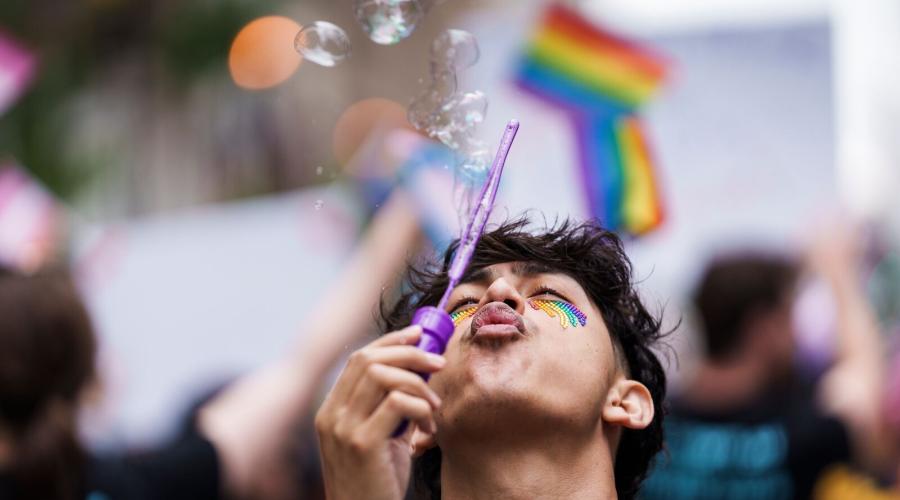
Representing Pride in Oakland
At UCSF Benioff Children’s Hospital Oakland, a new resident-led group is taking the initiative to support LGBTQ+ healthcare workers to facilitate a welcoming environment for all visiting patients and families. Stepping up as leaders, pediatric residents Alex Drinnan, MD, and Stephen Rowse, MD, founded and actively promote the group: Queer in Medicine.
“Without an established community, it can be especially difficult for trainees and doctors to navigate self-expression and decide to be ‘out’ in the workplace,” says Drinnan. “These challenges are heightened in times when LGBTQ+ rights are being threatened.”
Fostering Inclusivity
In September 2023, Drinnan and Rowse worked with hospital leadership to register UCSF Benioff Oakland to join the Oakland Pride parade. They then quickly organized a group of workers to march as part of the East Bay community.
“By restoring the hospital’s presence at the pride parade that had been missing since the pandemic, we’re looking to reestablish a strong tradition that brings our community together and demonstrates that LGBTQ+ professionals are thriving here,” said Rowse, who is joining UCSF faculty as a pediatric hospitalist.
While the parade and other events like community dinners open opportunities for people to connect outside of the intense environment at the hospital, visibility at work is equally important. Gender-neutral bathrooms and other physical signs of inclusivity, like pride flags, all contribute to a culture where differences are accepted and appreciated.
“We’re extremely appreciative of long-time faculty like Dr. James Crawford-Jakubiak, who has done so much to place UCSF Benioff Oakland at the forefront of inclusivity in medicine,” said Drinnan. “The beautiful flag in front of the hospital is thanks to his advocacy, which we’re trying to build on.”
Addressing Challenges
Crawford-Jakubiak serves as director for the Center for Child Protection at UCSF Benioff Oakland, where he and his team see pediatric patients with concerns of physical abuse, sexual abuse, or serious neglect. He’s an expert at creating a trusting environment where children and adolescents feel safe sharing difficult but important information.
Drinnan notes that visible signs of inclusivity around the hospital and from can also help LGBTQ+ feel more welcome and more willing to disclose sensitive information related to their health.
“We want all patients and families to feel properly cared for at our institution,” said Drinnan. “Using inclusive language when speaking to patients and in chart notes establishes a culture of respect that positively affects patients.”
UCSF is implementing a gender recognition and lived name policy that codifies some of the group’s vision by updating information systems to be less rigid. Increased visibility through the OUTlist and the Queer in Medicine group shows LGBTQ+ healthcare workers they’re welcome and accepted here.
Inclusivity is not meaningless; it empowers people who traditionally have to hide a part of themselves to feel comfortable expressing themselves. Rowse and Drinnan aim to help UCSF Benioff Oakland continue to lead cultural shifts in medicine that benefit the well-being of workers and patients alike.
